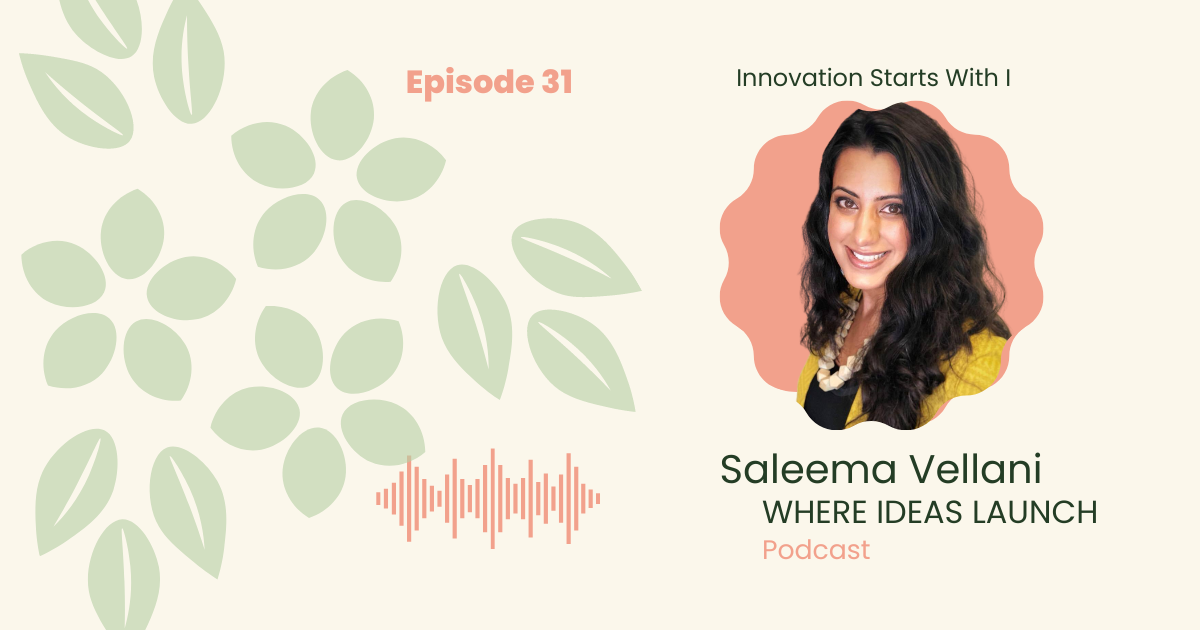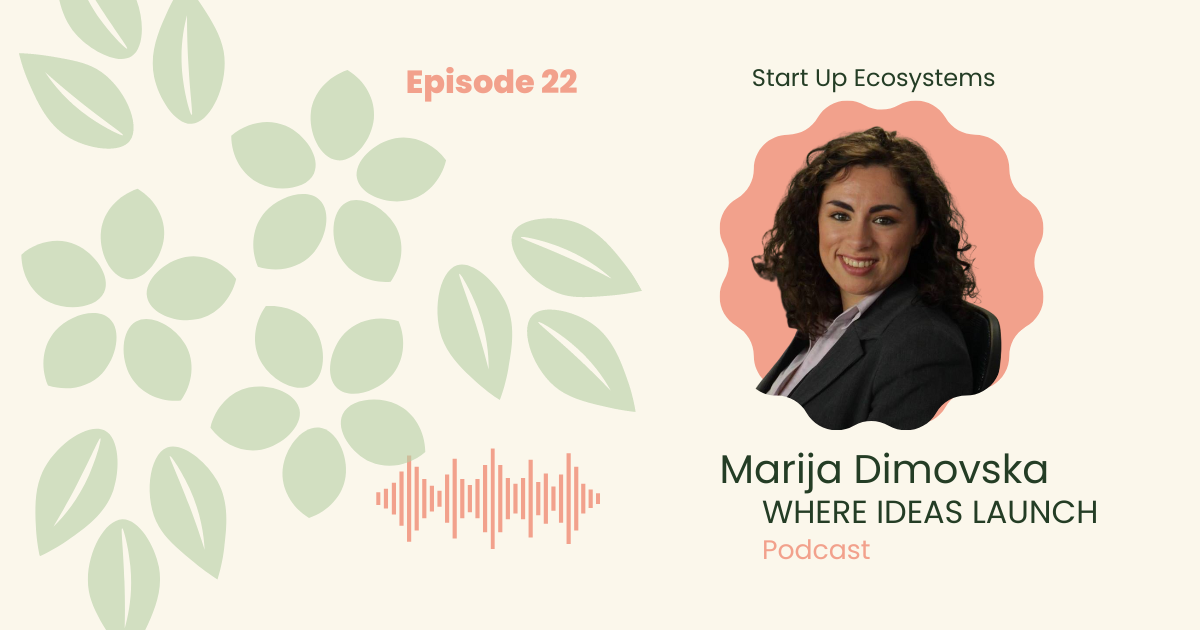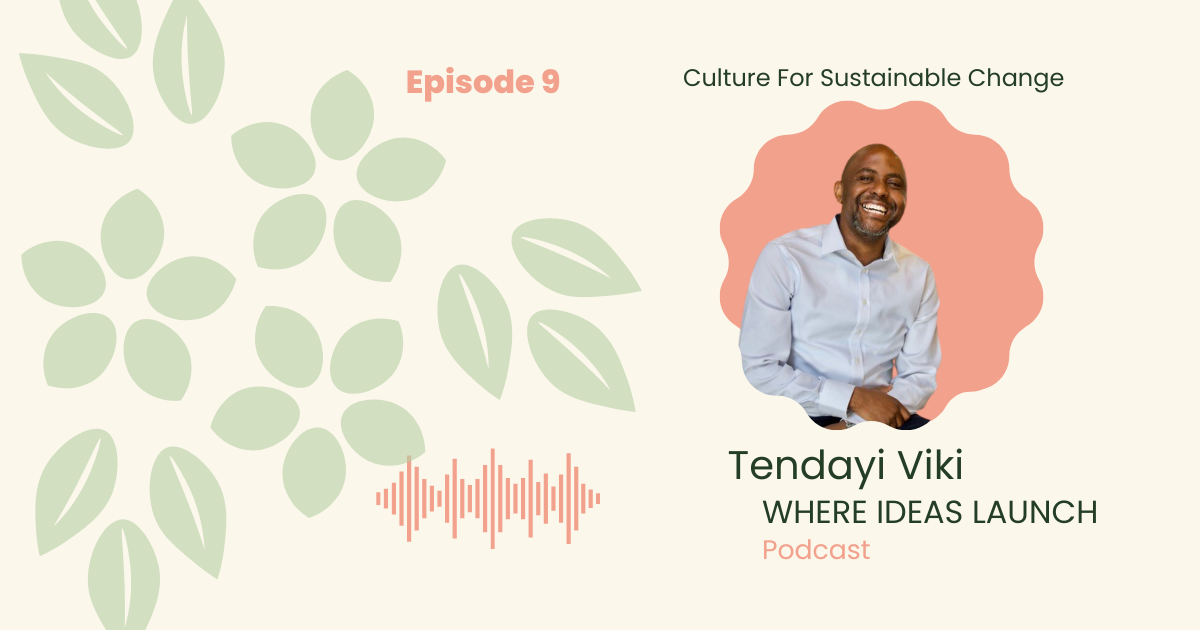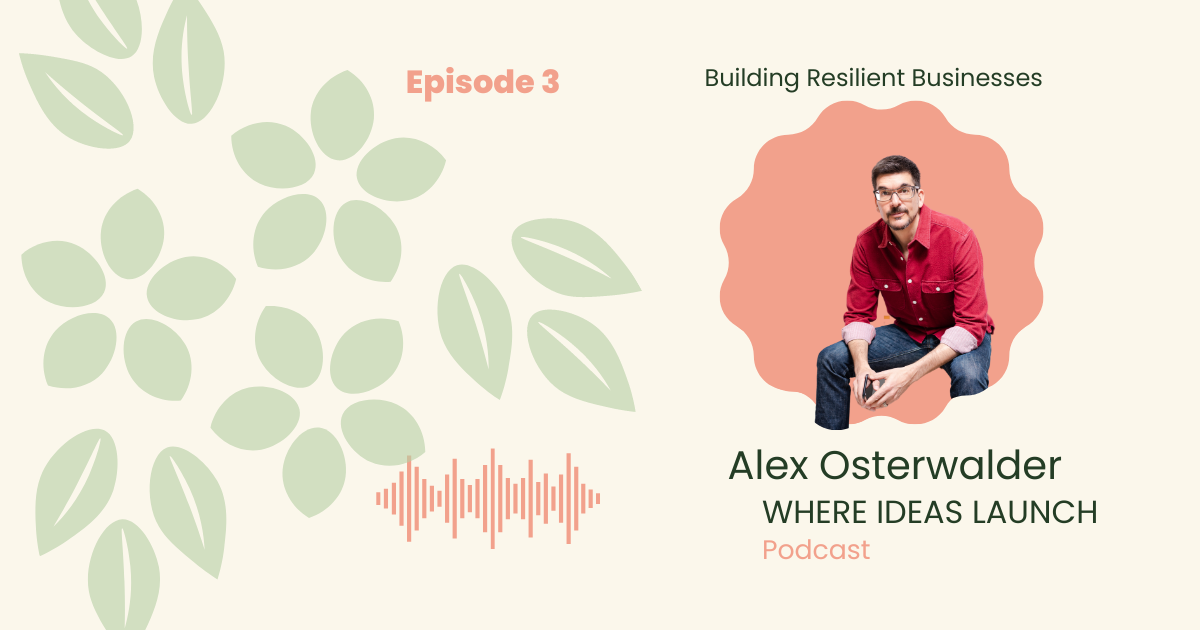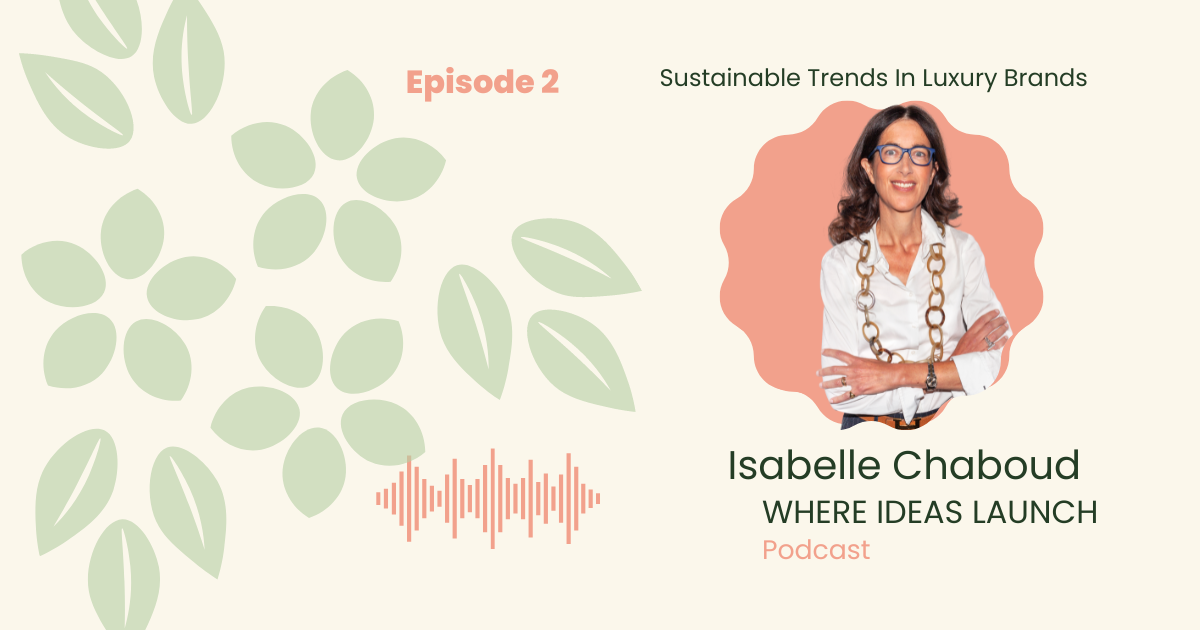033 IP Is Your Business
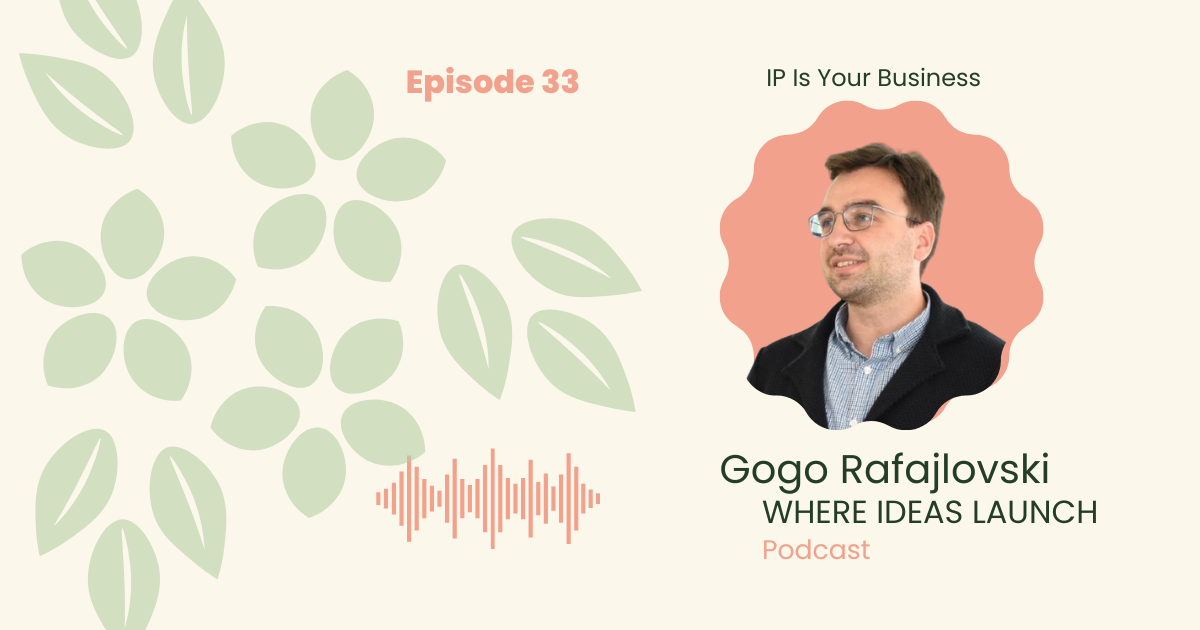
About this Episode
Gjorgji Rafajlovski (Gogo) is the Operational Director @SEEUTechPark in North Macedonia and an IP Consultant who helps entrepreneurs and innovative startups reach their maximum potential.
With an ongoing 15+ years of a successful career in managing start-up Ccnters, Incubators, Accelerators & TechParks, Gogo has built-up a portfolio as an experienced business consultant & mentor, passionate about technology & brands.
His background includes Operations Management, Startup Investments, Intellectual Property, Business Valuation, Innovative Growth. When he’s not supporting a world-changing start-up business, he loves outdoor sports!
We discussed how tech parks support start ups, the importance of IP, and we debated open innovation. Have a listen!
Connect with Gjorgki on Linkedin:
Subscribe to Where Ideas Launch
Connect with Gjorgki
Episode Transcript
Katherine Ann Byam 0:00
GoGo Welcome to where it is lunch. It's such a pleasure to have you on the show. I really want to understand all about cu tech Park, and what you've been doing in North Macedonia. Tell me a little bit about how the tech Park has positively impacted business and startup investment in your country.
Gjorgji Rafajlovski 0:46
Yeah, sure. So basically, the SEEUTechPark story began back in 2013. And it kind of started as a pilot project of the university. By the way, we are a private university overthink the first private university of everything here in North Macedonia. And we, we had this idea to start simulating the startups, the investment potential in and innovations through students and young people here in North Macedonia, and try to boost them into developing new startups and new tech tech businesses that has the potential to grow into change the world we live in. So basically, back in 2013, we kickstarted as a as a pilot project.
And then two years later, we incorporated ourselves as a Technology Park, actually, SeeUTechPark, and we started developing our own internal ecosystem, with men, we can boost our creativity and innovation. And then we became self sustainable actually, even today, we are one of the few organisations that have its sustainability as a as a core business value. And I think that's important because if you if you try to teach, especially young people, and innovators in becoming a real businessman and developing their own business, you should not just talk the talk, but you should also walk the walk. And this this system actually helped us to become more community-based and become more recognisable in our country as one of the few organisations that actually has the potential to commercialise your product and to bring added value.
Through this year, we specialise in many tailor-made services and products. And we kind of became a trademark for something that can be widely recognisable, not just in North Macedonia but in the whole region. And these are the two separate services that we provide. One is startup valuation or a company valuation. We do this as a third party, between investors and startups, wanting to raise money, and then another services, IP. So intellectual property. This is a we think is also something that can be introduced, and it should be introduced to all startups, especially in those startups, talking with investors talking with Parisian partners that want to expand their businesses and to become global players.
So basically, these two services are kind of unique to our ecosystem. And we we kind of added it to our everyday programmes and other services that are more or less equal, like every other technology parkour accelerated through the years. Seven and eight years along the path, I think we have accomplished good results in starting helping young enterpreneurs and startups reach their maximum potential. And nowadays we have helped more than 30 companies from from our country. Actually 13 out of them are still located that our technology, so they're located with our university, and we've created directly more than 150 new technology jobs which are boosting the national economy and the IP system in particular.
Katherine Ann Byam 5:16
This is a wonderful story. And really important to see how these, this innovation that you're doing is helping to grow businesses, not just in North Macedonia, but compared to the entire region as well. So this is fascinating to see, I wanted to ask a little bit more about intellectual property is this is to areas of particular specialisation. And I want to understand why this is important, first of all, and at what stage of development should young startups be getting into IP protection?
Gjorgji Rafajlovski 5:50
Yes, that's a very good question or two questions. I will start with a second one. At what stage do the startups need to think and to implement IP? I would say in the very beginning of developing your product or service, even before you create a company. Why is this because a lot of startups, even nowadays, think that intellectual property is something that you can add on along the path as you're developing your business idea, or a product or a service. But it's, it's not a single event thing.
So basically, intellectual property is something that you think of you plan and you implement during the whole journey of upgrading your startup. Because if you're waiting for the perfect conditions, to draft, to plan, and to implement some sort of IP, it won't happen ever. So basically, you have to start thinking about intellectual property as an asset to a company and to your product or service. So in terms of when they should start thinking about protecting the IP, I would say that even before you launch your product or service, you have to have some sort of IP strategy.
IP strategy is not something that you can immediately protect but see how certain things can develop in the certain way that in the future, you can have your assets and your IP working for you and for your business. Having in mind the first question as tp why it is important, only IP is is the asset that doesn't depreciate over time. So basically, the more you use it, the more value it gets. And the IP is the core thing that your business is unique for. So basically, every other thing that you have, business wise for a startup, let's say the office, the desk, the software, the computer, or a prototype can be easily copied, IP, the core of the IP is your your uniqueness at work, and what you're bringing, as a unique point, to the community and to your customers.
And that's why it is important. Nowadays, globally, more than 80% of all assets worldwide, are IP assets are intangible assets. So basically everything else that we see around us, surrounding every business is less likely to be to be copied if it's IP protected. So that's why I think I'm very pro on on on developing intellectual property that can boost your business, and then can bring unique value to both your product enter your investors, and for sure, you should think of how is the best way to protect it and to to give added value to your product or service.
Katherine Ann Byam 9:36
It's a really important point and very interesting point. And I'm going to challenge you now. And my challenge is that there are some that argue that a more open source approach is better for for innovation, and the greater good. So if we take for example, you know, Elon Musk and what he did with Tesla, or even a more recent example, with the ongoing debate around the COVID vaccines, what are your thoughts on whether or not we should embrace some element of openness when we're creating things that are new and game changing for the planet?
Gjorgji Rafajlovski 10:16
Yes, even nowadays, with the global pandemic, this is a more like, floating or open question that should be answered. But I'm personally very pro of intellectual property and the protection and let's say the benefits used by the system. But let me put it this way, you have this innovation system that somehow should be protected, you cannot have both extremes.
The first extreme is everything should be free, not protected at all. So anybody can use it. And it's another good thing for the free economy and for the in the Premiership. If someone could store your business or a product or a service that you've been researching or investing in for months or years, in the back end, you have this uniqueness, that that you should be able to commercialise it and you should be able to put this on the market and have a have a good return of investment for it. And so basically IP gives you a certain time for your business to commercialise a product or a service and then be the only player in the market for it, protecting you and your investment and your know-how and everything you put into a business for a certain period of time. It's not infinity, but it surely gives you an opportunity to get the investment back.
The other hand, the extreme opposite on the other side would be everything should be protected forever so you couldn't use anything without any approval from inventors. So, basically this is also extreme and it cannot be done, it would also hurt the economy and the inventors. So the perfect balance would be to boost innovativeness, to give people opportunity to patent, to protect, and to invent certain things, but also give give them just enough freedom to be able to commercialise it and not to put a forever mark on their products.
So basically, this is the fine balance between open innovation and too much protected innovation. At the end of the day, I will say that there are very positive towards the system that actually rewards something that is new, that is unique, and that could solve a person or a business problem. And and yes, you have to have a business opportunity to commercialise this kind of inventions in order to keep the wheel spinning.
Katherine Ann Byam 13:26
Yeah. What specifically should we be thinking about when we're starting to think about IP protection? So what things can we protect? And what can we not protect?
Gjorgji Rafajlovski 13:38
Basically, IP protection is very territorial. So you can protect a certain thing on a certain territory. So there is no uniqueness to what you can protect worldwide when we're talking about inventions. When we're talking about copyright, and we're talking about the software, it's pretty much protected from the moment that it has been created. So basically, it's some kind of universal protection.
You can always protect something that is a real invention that is new and is a breakthrough technology and then it has a market potential. People are trying to buy. You cannot protect something that is in plain nature. So basically, without a human intervention, you can protect let's say a plant or something that can be as a natural phenomenon in nature because you don't leave other people the opportunity to use it as it is. So basically something that is invented by people or by a group or by business, and is very unique, and it's something new, then it should be protected and it can be protected by IP rights.
Katherine Ann Byam 15:50
That's a fantastic response. And definitely, I think this is something that we need to get involved with. What do you see as the potential future for SEEUTechPark, and how you expected to transform the Macedonian economy in the future?
Gjorgji Rafajlovski 16:06
Thank you. That is also an interesting question. First of all, I see the development of the Tech Park as a good partner for startups and young innovators. That's for sure. I would see that in the next five years. We can help as many as young enterpreneurs that we can into the journey of commercialising their innovations, not just in this country but in the region and Europe also.
In general, I would like to see the first one of many unicorns from from this country and this region on the startup testing, especially in Europe. But also, I would like to see more investors tapping into this market because here in this region, we have very good talent, very skilled young people that are very opportunistic, and we have great conditions for for establishing and starting businesses.
So I would see ourselves as a good partner in the near future for every entrepreneur and startup. But I would also like to see the textbook, connecting with other hubs and innovation centres in the region, and with other universities, not just here, but also in Europe, and to develop and to bring value to to our clients and potential clients in boosting technology and innovation. Not just in our country, but but worldwide.
Actually, we're here just to promote entrepreneurship as a system and try to develop the new generation of Macedonian enterpreneurs that can go out there and change the world.
Katherine Byam 18:03
It's a great challenge that you have set up for yourself. And thank you for sharing your journey and SEEUTechPark with us. Thanks for joining the show.
Gjorgji Rafajlovski 18:12
Thank you, Katherine. Likewise,
